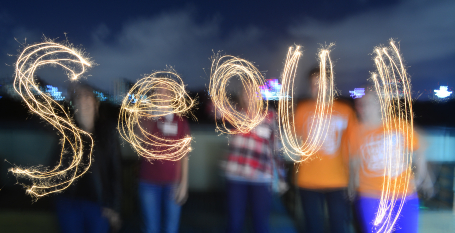South Korea’s supreme court has thrown out a military court ruling that convicted two gay soldiers for having sex outside their military facilities, saying it stretched the reading of the country’s widely criticised military sodomy law.
The court’s decision on Thursday to send the case back to the high court for armed forces was welcomed by human rights advocates, who had long protested the country’s 1962 military criminal act’s article 92-6, which prohibits same-sex conduct among soldiers in the country’s predominantly male military.
The article prescribes a maximum prison term of two years for “anal intercourse” and “any other indecent acts” between military personnel. After the supreme court’s full panel deliberation of its 13 justices, chief justice Kim Myeong-su said they concluded the provisions should not be applied to consensual sex between male service members that takes place outside military facilities during off-duty hours.
South Korean activist condemning Article 92-6 at a local pride event.
South Korea says consensual sex act between male soldiers ‘bordered on rape’
Read more
Advertisement
“The specific ideas of what constitutes as indecency has changed accordingly with the changes in time and society,” Kim said in a decision that was broadcast online.
“The view that sexual activity between people of the same sex is a source of sexual humiliation and disgust for objective regular people and goes against decent moral sense can hardly be accepted as a universal and proper moral standard for our times.”
The court later said in a press release that the decision was meaningful as a “declaration that consensual same-sex sexual activity (among military service members) could no longer been considered as punishable in itself”.
The two defendants – an army lieutenant and sergeant from different units – had been charged by military prosecutors in 2017 for having sex during off-duty hours at a residence outside their bases in 2016. They were among at least nine soldiers who were indicted in what critics described as the army’s aggressive crackdown on gay soldiers in 2017.
The defendants had appealed after the military high court upheld their convictions by a lower court based on article 92-6 and gave them suspended prison terms.
South Korea’s defence ministry said it will “carefully examine” the supreme court’s decision while proceeding with the case sent back to the military court.
The Seoul-based Center for Military Human Rights welcomed the decision, saying it set a new judicial precedent that could help tackle discrimination against sexual minorities in the military and strengthen protection of their privacy.
The group in a statement called for courts to acquit all service members charged with violating article 92-6 and for the country’s constitutional court to rule the provision as unconstitutional.
South Korea’s military has long been criticised over how it treats sexual minorities among its service members.
The district court in Daejeon city in October last year ruled that the army unlawfully discriminated against the country’s first known transgender soldier, Byun Hui-su, by discharging her for undergoing gender reassignment surgery, in a verdict that came seven months after she was found dead at her home.
The Supreme Court in South Korea has dismissed a military court ruling that convicted two gay soldiers for having sex.
While homosexuality is legal in South Korea, the soldiers were convicted under the country's 1962 military law that prohibits same-sex encounters between soldiers.
Under the military law, the maximum penalty is two years in prison.
The case before the court involved two male soldiers that had conssensual sex while they were off-duty and away from any military facilities. The court ruled that the military's prohibition of sex between same-sex soldiers could not be extended to those circumstances.
The case will now be returned to the military court to be reconsidered.
What’s life like for LGBTQ people in South Korea?
What’s life like for LGBTQ people in South Korea? Let’s take a look at some of the key equality indicators.
Is homosexuality legal in South Korea?
Yes. While same-sex encounters have never technically been illegal in South Korea, 2003 was a big step forward when homosexuality was officially declassified as “harmful and obscene”.
Are there anti-discrimination protections in place for LGBTQ people in South Korea?
While there are some protections in place at a local government level, national anti-discrimination legislation does not protect people from discrimination on the basis of sexuality or gender identity.
Is there marriage equality?
There is no legal recognition of same-sex relationships and no marriage equality.
What’s life like for LGBTQ people in South Korea?
South Korea is a socially conservative country. There remains a strong expectation that people conform to the norms of family and society.
Homosexuality is seen as a taboo subject.

